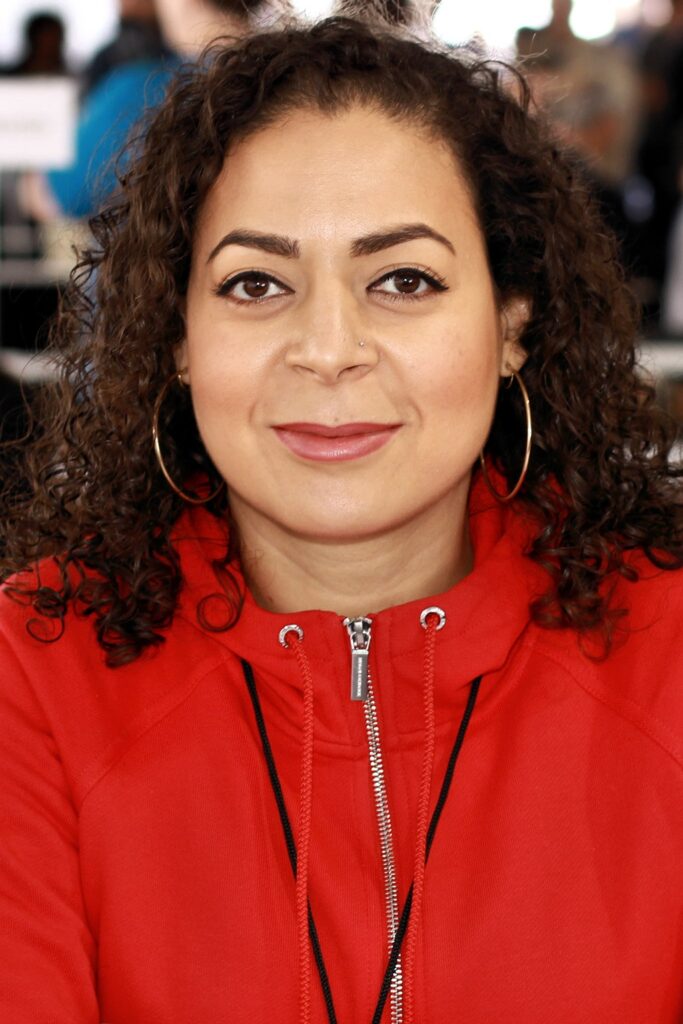“There comes a time when we realize that our parents cannot protect us, as much as we want them to, or need them to. There comes a time when we realize that we must save ourselves” p. 83
Díaz Jaquira. (2020). Ordinary girls: A memoir. Algonquin Books of Chapel Hill.
This section really shows Jaquira Diaz’s mother’s unraveling and progression of her mental illness. It is abundantly clear that the adults in Diaz’s life are not really capable of caring for her properly. In this section, she tells the readers about a relationship she entered before she was even in high school with a 21 year old. Though she describes the relationship through a mostly positive lens, the seven year age difference is illegal for a reason. A thirteen year old can not consent. She was a child, and Chris was an adult taking advantage of Diaz’s unstable home life and lack of positive adult figures.
On Page 75, Diaz describes her admiration for her mother before her addiction and mental illness took over. She worked hard, but cared for her children and was “exhausted but happy.” At one point, she wished to be like her mother when she got older. This wish later becomes her greatest fear as her mother’s condition worsened. Mami kidnaps Diaz and Alaina, forcing them to stay with her while failing to provide basic necessities. Even when they tried to escape, she “always caught us. Always (p 89).” When this happens, Diaz feels utterly abandoned by her father, who stands by and does not interfere with her mother’s antics. He is completely checked out, and disappoints Diaz again when he fails to protect her from Mami.
Throughout this section, Diaz interweaves the story of Baby Lollipops, the gutwrenching murder of a toddler, Lazaro Figueroa, that gained national media attention during key points in Diaz’s own life. She marks important memories by what was going on in the Baby Lollipops case, and tells the story simultaneously with her own. The side by side comparison and fixation on the fact that the baby’s own mother did such horrible things to him are intentional. Sometimes parents can do horrible things. Prolonged abuse is evident between Mami and Diaz and the correlation to the Lazaro Figueroa case is clear. Parents are supposed to love and protect their children, but when they are incapable of doing so, the responsibility to try to save themselves falls on the children. This was particularly threatening to Diaz because it served as a reminder that parents can be loving one day and monsters another.

Díaz Jaquira. (2020). Ordinary girls: A memoir. Algonquin Books of Chapel Hill.
Wikimedia Foundation. (2021, April 28). Jaquira Díaz. Wikipedia. Retrieved November 2, 2021, from https://en.wikipedia.org/wiki/Jaquira_D%C3%ADaz#/media/File:Jaquira_Diaz_2019_Texas_Book_Festival.jpg.



Hi Rachel,
When looking at Diaz’s childhood her mother plays a critical role. The unstable environment and lack of proper care causes Diaz’s upbringing to be one full of difficulty and hardship. Not only does this shape her childhood, but it begins to shape Diaz’s idea of who she wants to be. There was a shift in the person she wanted to be after her mother got sick. Before her mother got sick she said, ” how when I looked at her, I hoped that one day, I would be exactly like her” (Diaz 73). She idolized her mother and this was also shown in the quote you cited “exhausted but happy.” After her mother got sick, Diaz was terrified of being anything like her mother, and the obsession that her mother had of keeping her and her sister increased the fear of being like her.